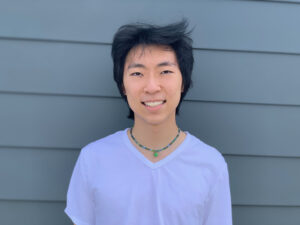This is part of a series of posts by recipients of the 2021 Career Services Summer Funding Grant. We’ve asked funding recipients to reflect on their summer experiences and talk about the industries in which they spent their summer. You can read the entire series here.
This entry is by Dale Kim, SEAS ’23
 This summer, I had the opportunity to work with Dr. Paula Oliver of the Perelman School of Medicine and the Children’s Hospital of Philadelphia (CHOP)’s Division of Protective Immunity in investigating molecular drivers of immune response that can lead to pathologies such as allergy and autoimmunity. We looked at a class of proteins called E3 ubiquitin ligases, which function to tag substrate proteins with ubiquitin—this process is imperative for protein function and half-life. We were specifically interested in an E3 ubiquitin ligase called Cullin-5 (Cul5), which has demonstrated significant roles in immune response (with abnormalities manifesting as cancers or autoimmune disorders), and a Cul5-interacting partner called Triad1. Recent studies have suggested that Triad1 cooperates with Cul5 to regulate protein ubiquitination. We focused on the interplay of Cul5 and Triad1 in regulating T helper cell function and differentiation. This was of significance as T helper cells are crucial for both adaptive and innate immune system activation and function. A better understanding of the mechanisms underlying T helper cell differentiation can be applied to numerous settings such as treating autoimmune disorders. Through both in vitro differentiations and an in vivo model of acute colitis in knockout mice, we demonstrated that there are defects in differentiation when T cells lacked Cul5 or Triad1. This is an important step in understanding the mechanisms behind these proteins and this information might aid the development of therapies for immune-related disorders, such as allergies or autoimmune diseases.
This summer, I had the opportunity to work with Dr. Paula Oliver of the Perelman School of Medicine and the Children’s Hospital of Philadelphia (CHOP)’s Division of Protective Immunity in investigating molecular drivers of immune response that can lead to pathologies such as allergy and autoimmunity. We looked at a class of proteins called E3 ubiquitin ligases, which function to tag substrate proteins with ubiquitin—this process is imperative for protein function and half-life. We were specifically interested in an E3 ubiquitin ligase called Cullin-5 (Cul5), which has demonstrated significant roles in immune response (with abnormalities manifesting as cancers or autoimmune disorders), and a Cul5-interacting partner called Triad1. Recent studies have suggested that Triad1 cooperates with Cul5 to regulate protein ubiquitination. We focused on the interplay of Cul5 and Triad1 in regulating T helper cell function and differentiation. This was of significance as T helper cells are crucial for both adaptive and innate immune system activation and function. A better understanding of the mechanisms underlying T helper cell differentiation can be applied to numerous settings such as treating autoimmune disorders. Through both in vitro differentiations and an in vivo model of acute colitis in knockout mice, we demonstrated that there are defects in differentiation when T cells lacked Cul5 or Triad1. This is an important step in understanding the mechanisms behind these proteins and this information might aid the development of therapies for immune-related disorders, such as allergies or autoimmune diseases.
As a student aspiring to become a physician-scientist in the field of pediatric immunology and infectious disease, this summer opportunity was immensely helpful in establishing a sense of the reciprocity between real world clinical pathologies and bench-based research. It was amazing to see the scientific method learned in the classroom projected onto a practical setting, where the beneficiaries of the research must always be taken into consideration. Additionally, with the advent of COVID-19 vaccines this year, it was fascinating to gain a detailed understanding of how the immune system operates to eliminate even the most elusive pathogens.
Overall, this summer opportunity was incredibly relevant to both my career aspirations as well as the current state of the world, and I am grateful to have had the opportunity to perform research at the frontier of this field. The funding through Career Services was invaluable in allowing me to have this experience—through the generosity of Career Services, I was able to perform research with a lab that fit my interests without having to worry about costs such as living expenses or food, enabling me to focus on my work.




